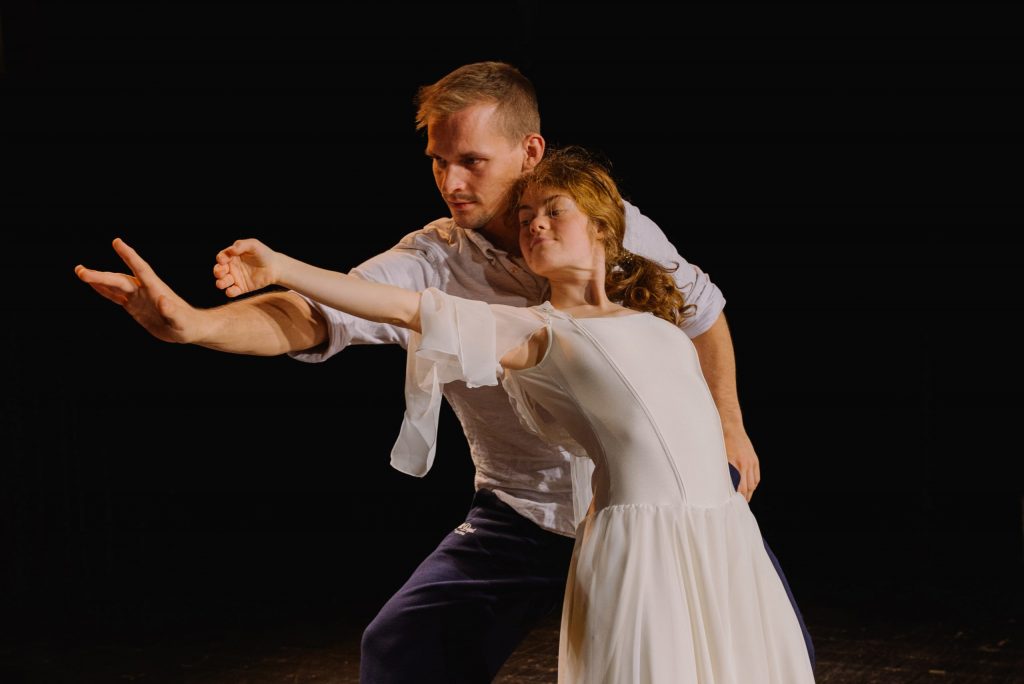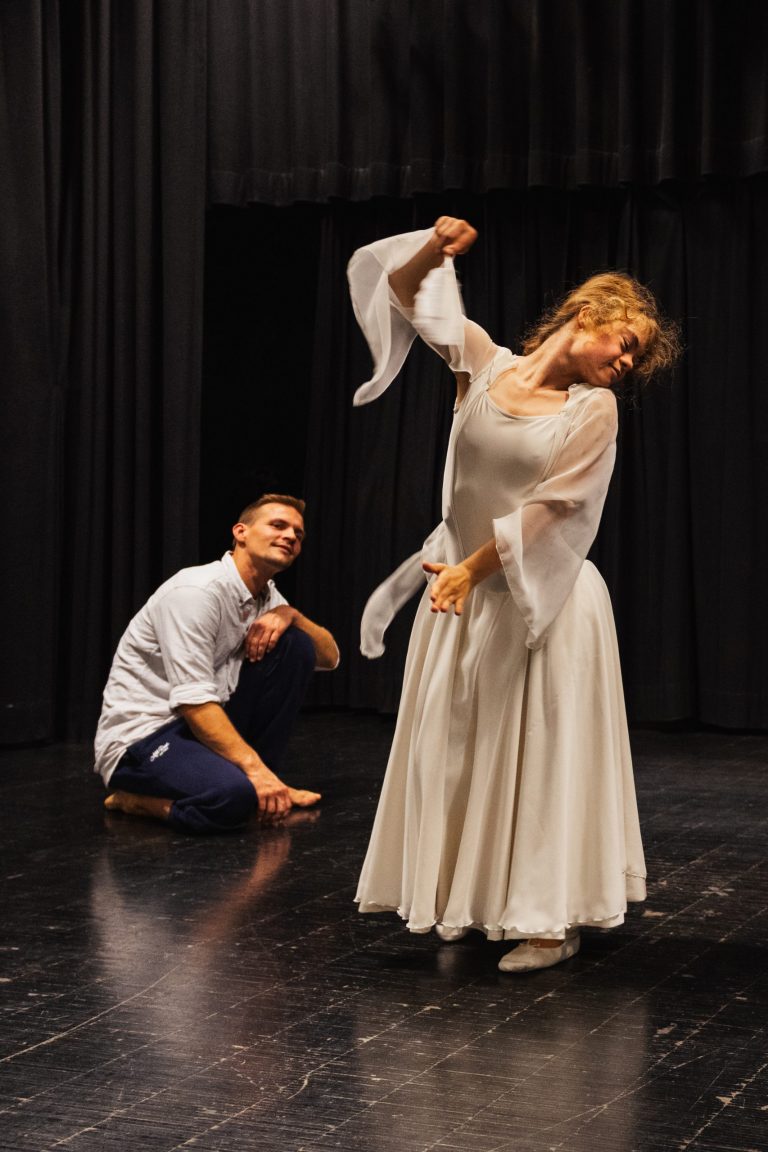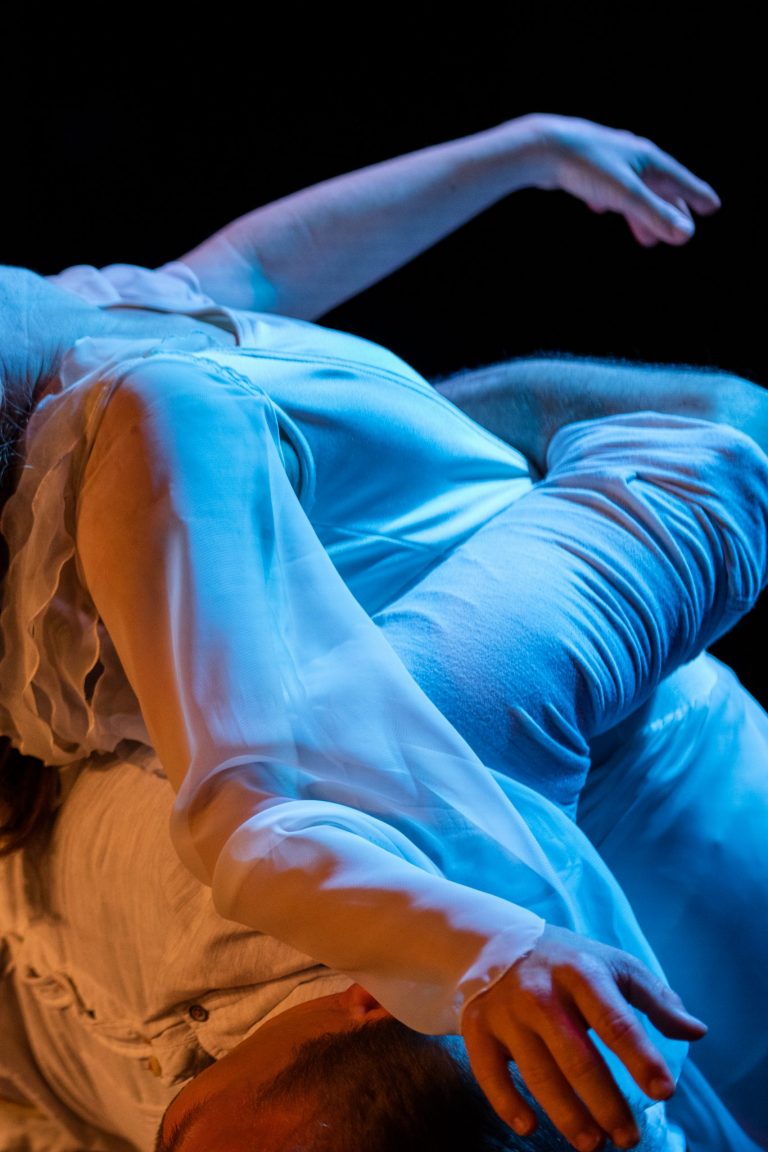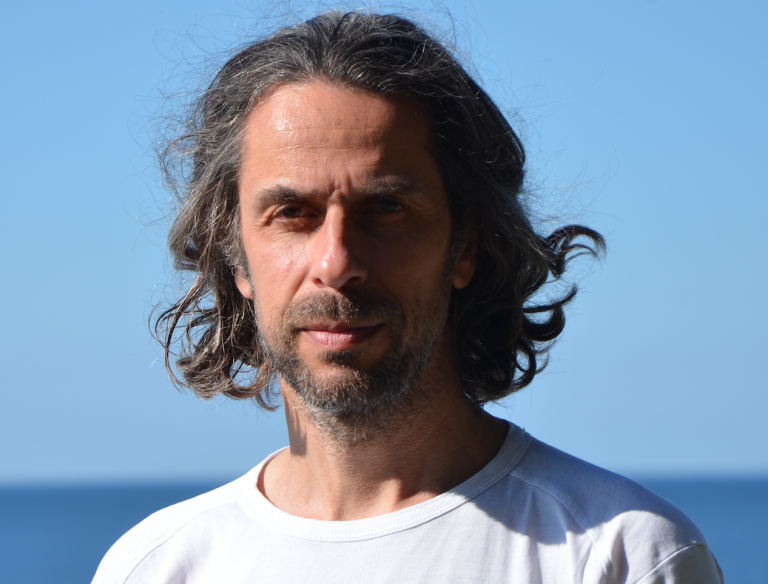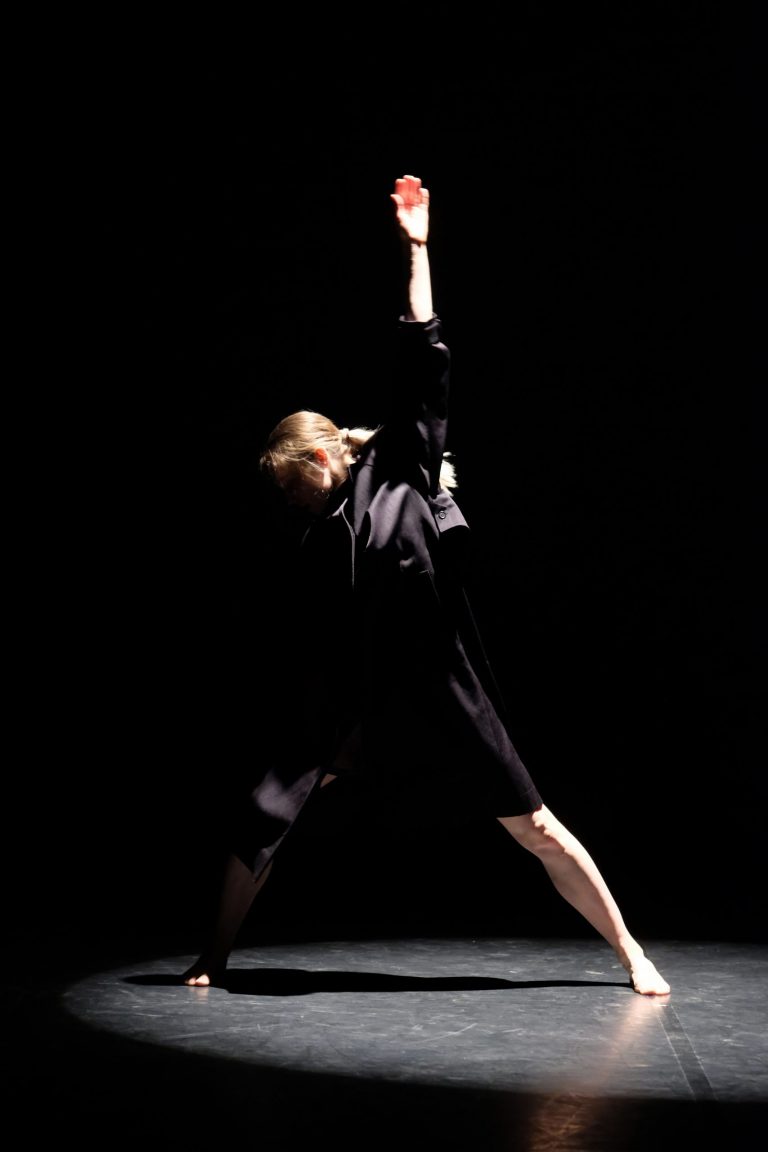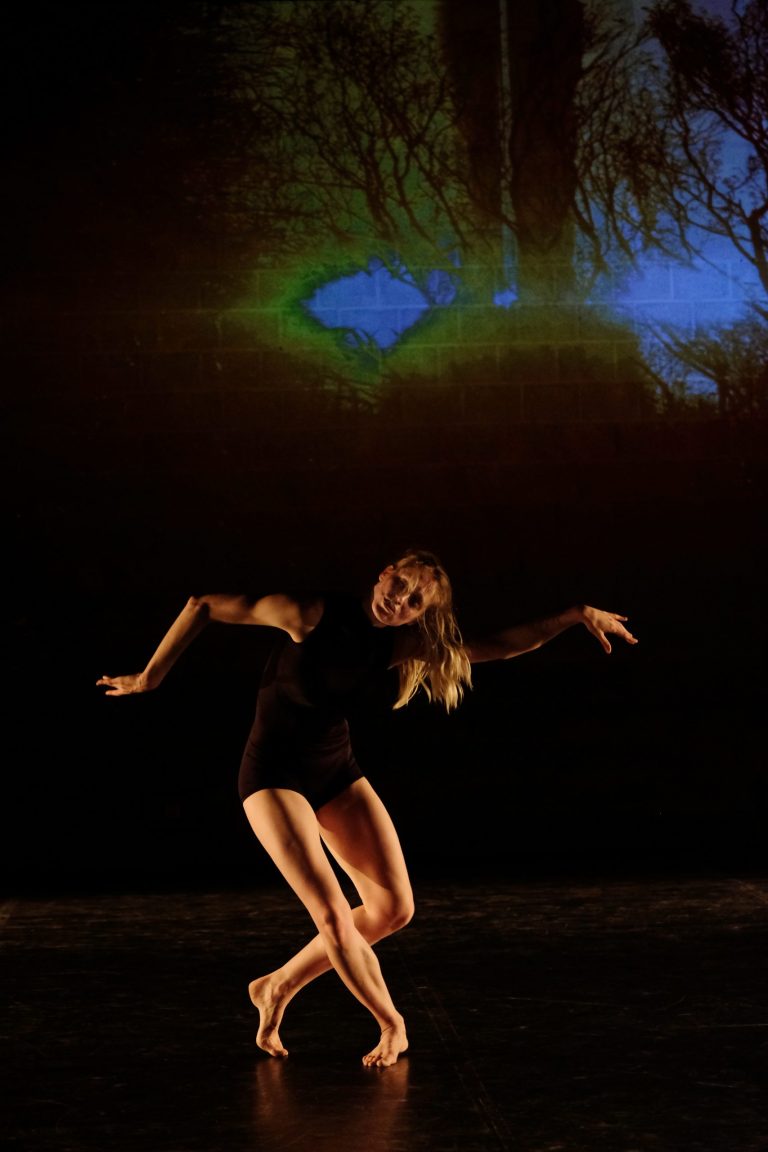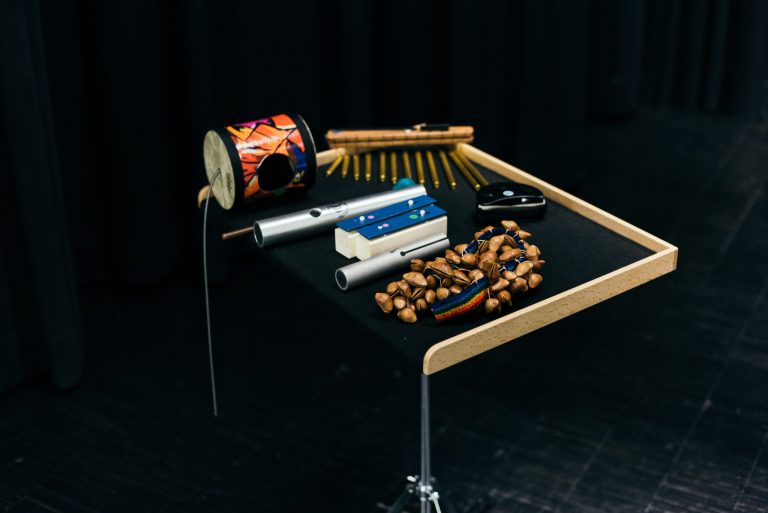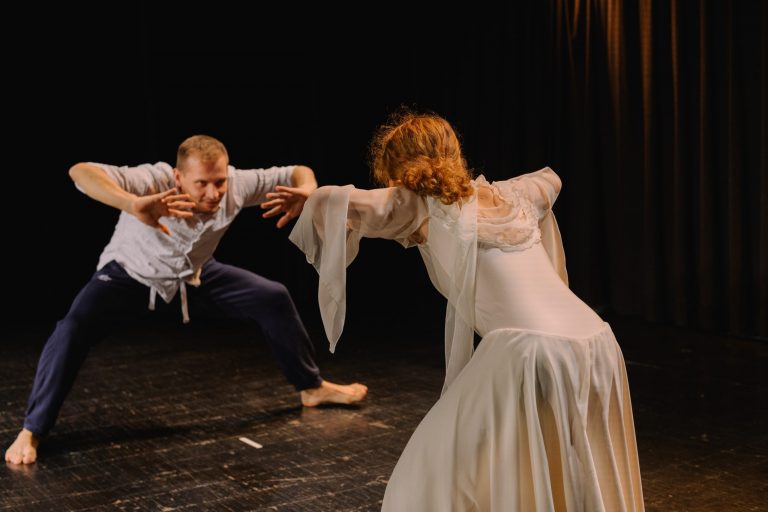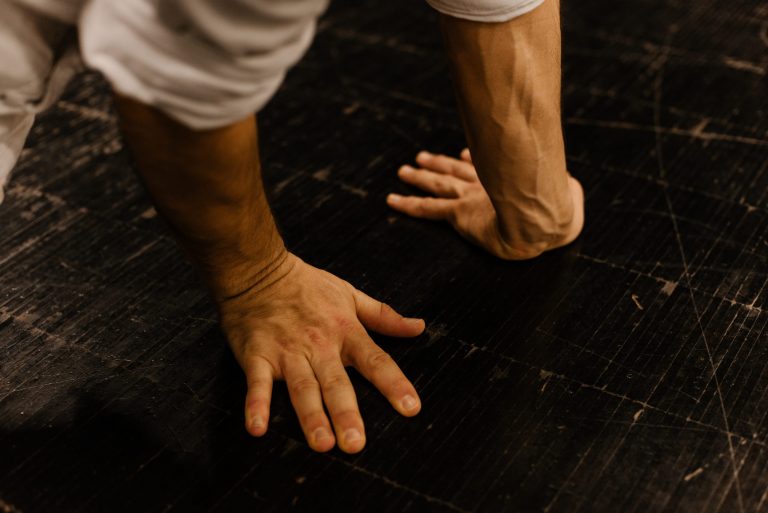DieTanzKompanie by Kulturzentrum Dieselstrasse e.V.
At Kulturzentrum Dieselstrasse in Esslingen, professional dancers with and without disabilities are redefining dance. Be it in a solo, a duo, a group, with or without wheelchair – under the direction of choreographer and film-maker Gregory Darcy, these dancers are challenging conventional concepts of perfection and beauty. The various types of impairment mean that new forms of movement, dance, and expression are created.
“Dancing is touching, it’s another way of speaking. Here, people with and without disabilities can develop new and innovative forms of expression in the world of dance – such as extrapolating the concept of sign language to become a dance form. The fact that the project is also specifically committed to making use of rural areas makes it exceptional on an progressive (further) level and will hopefully serve as an inspiration to others”, says the jury.
Report on DieTanzKompanie at the Dieselstrasse Culture Center.
Professional dancers with and without disabilities rewrite the concept of dance.
“People love stories – they help us to understand the world around us. Ballets tell stories in a different manner. As non-verbal communication conveying not information but internal feelings and human relationships, dance makes it possible to present emotions lively.”
John Neumeier, Director of Hamburger Ballet – Editorial Spielzeit 2019/20
And when she dances, it takes her someplace else…
It’s dark in the theater hall holding 230 audience members at the Dieselstrasse Culture Center in Esslingen. Only the stage is bathed in the warm light from the spots, the loudspeakers are emitting music from Daniel Mille’s “Après la pluie”. Laura lightly floats over the stage in a champagne-colored ballet dress, her graceful body moving to the sounds of the music. Her eyes are looking to establish contact with Johannes, her dance partner. He meets her glance almost tenderly, her physical expression, her body language. Peu à peu, he begins to imitate her movements and the couple slip into a dialog of dance. Laura and Johannes require no words. Motion is their language. They are both professional dancers – with one difference, Laura has the genetic trait of trisomy 21.
DieTanzKompanie was founded by French choreographer and filmmaker Gregory Darcy. By uniquely combining dancing with disability, Darcy’s professional performances endeavor to redefine the meaning of dance and to raise awareness among audiences. “I do not like the caption of with and without handicaps,” days Darcy. “We are an ensemble of professionals with varying abilities.”
Darcy has had other dance projects in the past with marginal groups involving “refugee backgrounds” or “disability”. This is not so much about the circumstance of “with” or “without” but rather thinking critically about terms like beauty, perfection, and integration.
Beauty will also be an important aspect in Darcy’s newest performance with DieTanzKompanie: the preparatory project Dance with Beauty [Tanz mit der Schönheit] itself, was Darcy’s attempt to get people to reflect upon the conventional definitions of beauty. He finds the connection between people, their authenticity, and their intuition to have almost more importance. His new full-length project will consist of multiple individual pieces, some being solos and others being duets or group dance. One special feature here is the live music accompanying the stage, usually interactively. To that end, Darcy was able to engage Hans Fickelscher, one of the most versed and versatile jazz percussionists in southern Germany, as well as shakuhachi master Nina H. and Syrian singer and guitarist Mazen Mohsen. They will be composing new pieces as well as interpreting existing works.
The ensemble at DieTanzKompanie consists of five to six dancers with and without disability, three musicians, and invited artists. “We are coming together from different cultures,” explains Darcy, “and have different religions and abilities. I would like my choreography to show the audience how everyone in our society is important and interesting. It doesn’t matter what country you come from, which culture and religion you have, or which limitations you have.”
In order to also reach children and teenagers, workshops and performances offer student discounts as well as subsequent discussions on the subject of disability and school.
Darcy doesn’t just want the ensemble at DieTanzKompanie to be inclusive – he wants the performances to be as accessible as possible, too. “We’d like to have conversations with audiences using sign language interpreters, to offer performances synchronized with headphones for the blind, and to create workshops for students on the subject of disabilities.”
For Gregory Darcy, his performances are more than reflections on socially relevant topics. They represent the wish for a world in which people are no longer categorized according to black or white, refugee or local, disabled or non-disabled. “I’d like to see a world in which there are only people.”

